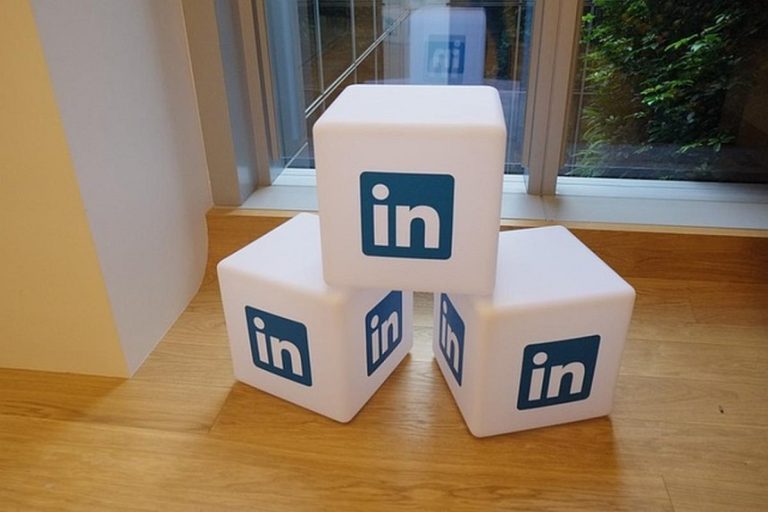
Similar Posts

DUBLIN – Ireland’s data protection commission has fined LinkedIn €310 million (S$442 million) for illegally processing the personal data of users within the European Union to deliver targeted advertising.
The decision also includes an order for Microsoft Corp-owned LinkedIn to bring its data processing into compliance with the EU’s General Data Protection Regulation (GDPR), according to a statement by the Irish Data Protection Commission (IDPC) on Oct 24.
Deputy Commissioner Graham Doyle said in a statement that LinkedIn’s processing of personal data without an appropriate legal basis was a “clear and serious violation of data subjects’ fundamental right to data protection”.
It is the sixth-largest fine to be issued under GDPR since it was introduced in 2018.
The Irish regulator has issued hefty fines to several social media companies for GDPR violations in recent years.
Facebook and Instagram parent Meta Platforms Inc has faced the brunt of the penalties, including a record €1.2 billion charge in May 2023 for transferring EU users’ data to the US. The commission fined ByteDance Ltd’s TikTok €345 million in September 2023 over its handling of children’s data.
It is part of a broader crackdown on Big Tech companies by the EU over a range of issues including data privacy, competition and disinformation.
LinkedIn said the case relates to claims from 2018 about some of its digital advertising efforts in the EU.
“While we believe we have been in compliance with the General Data Protection Regulation (GDPR), we are working to ensure our ad practices meet this decision by the IDPC’s deadline,” a spokesperson said in a statement.
Ireland’s data protection commission launched an inquiry into LinkedIn’s data processing practices following a complaint made to the French data regulator. LinkedIn, like many other big tech companies, has its European headquarters in Ireland, which means that local regulators are tasked with enforcing EU rules. BLOOMBERG

It is a sad but undeniable truth that some of the world’s most profitable products are terrible. That lightbulb realisation dawned on me when I worked on the Financial Times’ Lex column and learnt that the most successful pharmaceutical drugs – for manufacturers if not patients – were those that alleviated symptoms but did not cure the complaint. Eliminate the problem and you kill demand. Where is the financial incentive in that?
Lightbulbs, curiously enough, are another example of the same phenomenon. Why develop everlasting lightbulbs (the Centennial Bulb has been in continuous operation in a Californian fire station since 1901) when you can sell ones that blow periodically? Economic theory suggests that these inefficiencies should be competed away. Real life does not always work that way.
No contract
ST app access on 1 mobile device

We spend so much of our lives online but have we thought about what will happen to our digital trails and assets when we die?
It is a question that came up for husband-and-wife content creators Muhammad Alif Ramli and Liyana Syahirah Ismail Johari.
 Content creators Liyana Syahirah Ismail Johari and Muhammad Alif Ramli documented their journey in seeking help to manage digital assets.
Content creators Liyana Syahirah Ismail Johari and Muhammad Alif Ramli documented their journey in seeking help to manage digital assets.
They realise, for example, if no clear instructions are left behind, not knowing the passwords or about dormant accounts on long-forgotten platforms can pose problems.
It is especially important, given Mr Alif’s medical history.
When Mr Alif was 10, he was diagnosed with rhabdomyosarcoma, a soft tissue cancer. He underwent multiple chemotherapy cycles and nine surgical operations, which the 28-year-old described as a “close-to-death experience”, before he recovered.
In the fourth episode of The Straits Times’ docuseries Let’s Talk About Death, Mr Alif and Ms Liyana, 27, seek help from experts to consolidate their digital assets.
They speak to a cyber security expert to find out how to best manage their passwords. They also talk to a lawyer who specialises in digital assets to look into protecting their social media accounts, which may generate revenue in the future.
Finally, Mr Alif and Ms Liyana also attempt to write their wills with the help of artificial intelligence tools, with the key question being: Will they be valid under syariah law?
Let’s Talk About Death is a five-episode docuseries that follows several millennials and their loved ones as they navigate end-of-life planning, and it starts honest conversations about death and dying well.

HELSINKI – A fibre optic communications cable linking Finland and Germany along the seabed has stopped working and may have been severed by an outside force, Finnish state-controlled cyber security and telecoms network company Cinia said on Monday.
The 1,200 km (745 miles) C-Lion1 cable running through the Baltic Sea from Finland’s capital Helsinki to the German port of Rostock malfunctioned just after 0200 GMT, the company said.
The sudden outage implied that the cable was completely severed by an outside force, although a physical inspection has not yet been conducted, Cinia’s Chief Executive Ari-Jussi Knaapila told a press conference.
The damage occurred near the southern tip of Sweden’s Oland island and could typically take between five and 15 days to repair, he added.
Cinia said it was working with authorities to investigate the incident.
Last year a subsea gas pipeline and several telecoms cables running along the bottom of the Baltic Sea were severely damaged in an incident raising alarm bells in the region.
Finnish police investigating the 2023 case have named a Chinese container ship believed to have dragged its anchor as a prime suspect, but have not said whether the damage was believed to be accidental or done with intention.
In 2022 the Nord Stream gas pipelines linking Russia to Germany in the Baltic Sea were destroyed by explosions in a case that remains under investigation by German authorities. REUTERS

WASHINGTON – A U.S. Senate Judiciary subcommittee overseeing technology issues will hold a hearing Tuesday on Chinese hacking incidents, including a recent incident involving American telecom companies.
The hearing to be chaired by Senator Richard Blumenthal will review the threats “Chinese hacking and influence pose to our democracy, national security, and economy,” his office said, adding the senator plans “to raise concerns about Elon Musk’s potential conflicts of interest with China as Mr. Musk becomes increasingly involved in government affairs.”
Musk, the head of electric car company Tesla, social media platform X and rocket company SpaceX, emerged during the election campaign as a major supporter of U.S. President-elect Donald Trump. Trump appointed him as co-head of a newly created Department of Government Efficiency to “slash excess regulations, cut wasteful expenditures, and restructure Federal Agencies.”
Musk, who was in China in April and reportedly proposed testing Tesla’s advanced driver-assistance package in China by deploying it in robotaxis, did not immediately to requests for comment.
The hearing will include CrowdStrike Senior Vice President Adam Meyers and Telecommunications Industry Association CEO David Stehlin, Strategy Risks CEO Isaac Stone Fish and Sam Bresnick, research fellow at the Center for Security and Emerging Technology at Georgetown University,
Last week, U.S. authorities said China-linked hackers have intercepted surveillance data intended for American law enforcement agencies after breaking in to an unspecified number of telecom companies, U.S. authorities said on Wednesday.
The hackers compromised the networks of “multiple telecommunications companies” and stole U.S. customer call records and communications from “a limited number of individuals who are primarily involved in government or political activity,” according to a joint statement released by the FBI and the U.S. cyber watchdog agency CISA.
The announcement confirmed the broad outlines of previous media reports that Chinese hackers were believed to have opened a back door into the interception systems used by law enforcement to surveil Americans’ telecommunications.
It follows reports Chinese hackers targeted telephones belonging to then-presidential and vice presidential candidates Donald Trump and JD Vance, along with other senior political figures, raised widespread concern over the security of U.S. telecommunications infrastructure.
Beijing has repeatedly denied claims by the U.S. government and others that it has used hackers to break into foreign computer systems.
Last month, a bipartisan group of U.S. lawmakers asked AT&T, Verizon Communications and Lumen Technologies to answer questions about the reporting hacking of the networks of U.S. broadband providers. REUTERS

An Iranian hacking group is actively scouting U.S. election-related websites and American media outlets as Election Day nears, with activity suggesting preparations for more “direct influence operations,” according to a Microsoft blog published on Wednesday.
The hackers – dubbed Cotton Sandstorm by Microsoft and linked to Iran’s Islamic Revolutionary Guard Corps – performed reconnaissance and limited probing of multiple “election-related websites” in several unnamed battleground states, the report said. In May, they also scanned an unidentified U.S. news outlet to understand its vulnerabilities.
U.S. Vice President Kamala Harris, the Democratic candidate, faces Republican rival Donald Trump in the Nov. 5 presidential election, which polls suggest is an extremely tight race.
“Cotton Sandstorm will increase its activity as the election nears given the group’s operational tempo and history of election interference,” researchers wrote. The development is particularly concerning because of the group’s past efforts, they said.
A spokesperson for Iran’s mission to the United Nations said that “such allegations are fundamentally unfounded, and wholly inadmissible.”
“Iran neither has any motive nor intent to interfere in the U.S. election,” the spokesperson said.
In 2020, Cotton Sandstorm launched a different cyber-enabled influence operation shortly before the last presidential election, according to U.S. officials. Posing as the right-wing “Proud Boys,” the hackers sent thousands of emails to Florida residents, threatening them to “vote for Trump or else!”
The group also released a video on social media, purporting to come from activist hackers, where they showed them probing an election system. While that operation never affected individual voting systems, the goal was to cause chaos, confusion and doubt, senior U.S. officials said at the time.
Following the 2020 election, Cotton Sandstorm also ran a separate operation that encouraged violence against U.S. election officials who had denied claims of widespread voter fraud, Microsoft said.
The Office of the Director of National Intelligence, which is coordinating the U.S. federal effort to protect the election from foreign influence, referred Reuters to a past statement that said: “Foreign actors — particularly Russia, Iran, and China — remain intent on fanning divisive narratives to divide Americans and undermine Americans’ confidence in the U.S. democratic system.” REUTERS
